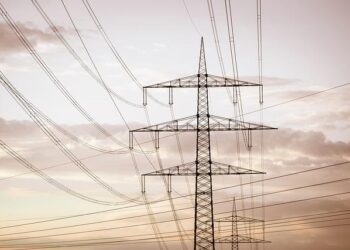In a high-stakes diplomatic encounter that could reshape Eastern Europe’s geopolitical landscape, recent talks between former U.S. President Donald Trump and Russian President Vladimir Putin have cast uncertainty over Moldova’s pro-European Union trajectory. As both leaders discussed key regional issues, analysts warn that the outcome may embolden Moscow’s influence and complicate Moldova’s aspirations for closer integration with the West. This development raises critical questions about the future of the small but strategically significant country, caught between competing powers.
Trump Putin Discussions Cast Shadow Over Moldova’s European Integration Prospects
Recent high-level discussions between former U.S. President Donald Trump and Russian President Vladimir Putin have introduced significant uncertainty into Moldova’s path toward European Union integration. Analysts warn that the dialogue, which reportedly touched on Moldova’s geopolitical positioning, risks emboldening Moscow’s influence in the region at a critical juncture. Pro-EU advocates in Chisinau fear that any shift in U.S.-Russia dynamics could weaken Western support for Moldova’s reforms and diplomatic efforts, potentially delaying or derailing accession talks. Meanwhile, Russia’s strategic interests in maintaining leverage over Moldova’s breakaway region, Transnistria, remain deeply entrenched, complicating the landscape for EU policymakers.
The geopolitical tug-of-war can be summarized as follows:
- U.S. Influence: Potential recalibration of American foreign policy toward Eastern Europe, possibly deprioritizing Moldova’s EU ambitions.
- Russian Leverage: Continued assertive positioning on energy supplies, security, and diplomatic pressure to counterbalance EU integration efforts.
- Moldovan Stakeholders: Facing internal divisions amid uncertainties, with pro-European parties weighing their next moves carefully.
| Stakeholder | Objective | Risk Level |
|---|---|---|
| Moldovan Government | Secure EU integration | High |
| Russian Federation | Maintain regional influence | Medium |
| United States (post-discussions) | Balance geopolitical priorities | Medium |
| European Union | Promote regional stability | Variable |
Implications for Regional Security and Belarusian Influence
The recent dialogue between Trump and Putin signals a potential recalibration of power dynamics in Eastern Europe, with significant consequences for regional stability. Belarus, acting as a crucial ally to Russia, could leverage this shift to strengthen its political and military influence across neighboring states, including Moldova. This development poses a direct challenge to the European Union’s efforts to promote democratic reforms and economic integration within the region. Heightened Belarusian assertiveness may embolden Kremlin-friendly factions, exacerbating existing divisions and threatening to undermine Moldova’s aspirations for closer ties with the EU.
As Moscow and Minsk coordinate more closely, the security architecture of Eastern Europe faces increased uncertainty. Key risks include:
- Expansion of Belarusian military presence along strategic borders
- Amplification of disinformation campaigns targeting pro-EU governments
- Disruption of Western-led initiatives fostering regional cooperation
| Factor | Potential Impact | Regional Actor |
|---|---|---|
| Enhanced Belarus-Russia Military Ties | Pressure on Moldova’s border security | Belarus/Russia |
| Increased Pro-Russian Propaganda | Political polarization within Moldova | Belarus |
| Stalled EU Engagement | Reduced reforms and aid effectiveness | Moldova/EU |
Ultimately, the evolving Belarusian role complicates efforts to stabilize the region and poises Moldova at a critical crossroads between Western integration and rising Eastern influence.
Strategic Policy Recommendations to Safeguard Moldova’s Pro European Path
To ensure Moldova’s unwavering commitment to European integration, policymakers must prioritize strengthening institutional resilience against external pressures. This includes enhancing judicial independence, fortifying anti-corruption measures, and expanding the capacity of civil society organizations that advocate for democratic reforms. A robust legal framework aligned with EU standards will serve as a critical bulwark against authoritarian influence and provide the necessary foundation for sustained cooperation with European partners. Additionally, diversifying energy sources and infrastructure can reduce Moldova’s geopolitical vulnerabilities exploited by pro-Russian actors.
Key actions recommended for immediate focus:
- Strengthening diplomatic engagement with the EU and NATO to secure economic and security guarantees.
- Investing in digital infrastructure to promote transparency and limit disinformation campaigns.
- Launching targeted economic reforms aimed at attracting European investments and fostering sustainable growth.
| Policy Area | Recommended Action | Expected Impact | |||||||||||
|---|---|---|---|---|---|---|---|---|---|---|---|---|---|
| Judicial Reform | Establish independent oversight bodies | Reduce corruption, enhance EU compliance | |||||||||||
| Energy Security | Develop alternative energy partnerships | Mitigate Russian leverage, stabilize supply | |||||||||||
| Economic Reform |
Would you like me to help with anything else, such as styling suggestions or additional content? The ConclusionAs Trump and Putin continue to engage in high-stakes diplomacy, the trajectory of Moldova’s pro-European aspirations hangs in the balance. The outcomes of their talks may well reshape the geopolitical landscape of Eastern Europe, leaving Moldova’s future more uncertain than ever. Stakeholders and observers alike will be closely monitoring developments, as decisions made in these corridors of power could determine whether Moldova strengthens its ties with the West or veers towards Moscow’s sphere of influence. ADVERTISEMENT |
















